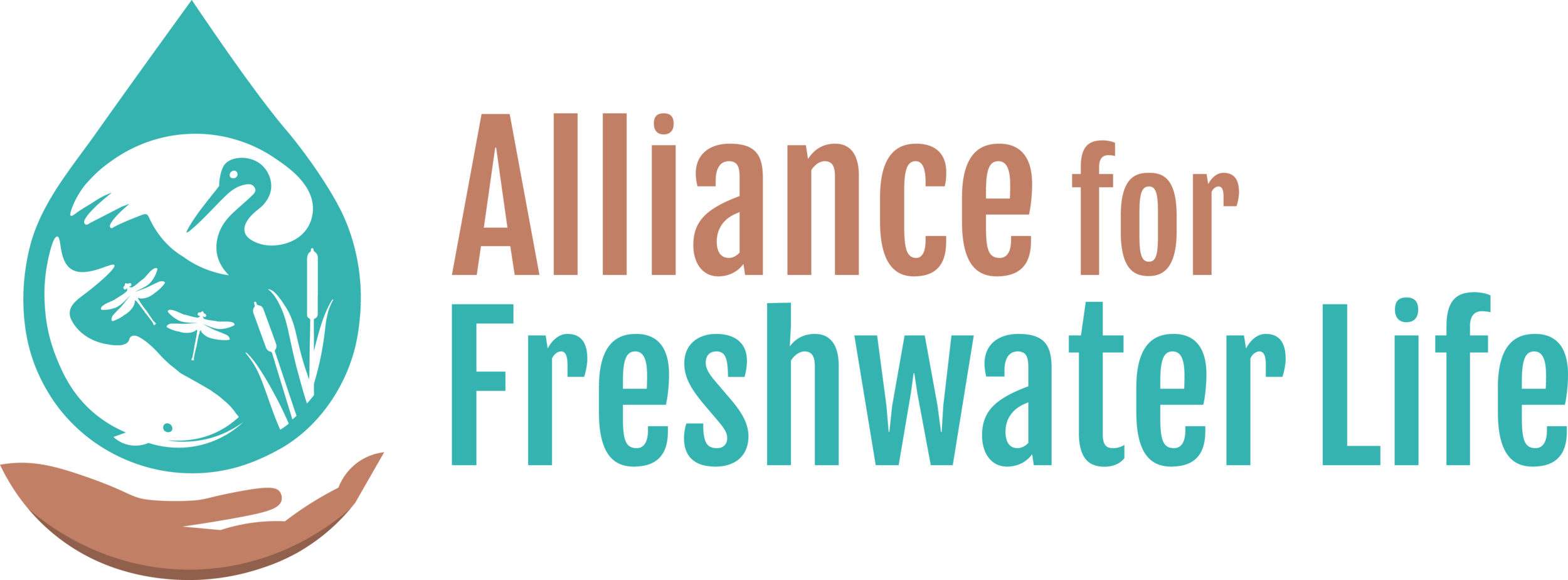Our Vision
A world where people better understand, value, and safeguard freshwater biodiversity.
The challenges we face:
Freshwater ecosystems are among the most complex, dynamic, and diverse on Earth.
Current water- and land-use practices have led to unprecedented rates of decline in freshwater species and ecosystems, and in their genetic and functional diversity.
Global commitments to halt this loss of freshwater biodiversity are not being met.
Freshwater ecosystems provide habitat for more than 100,000 known species of fishes, molluscs, reptiles, insects, plants and mammals, despite covering less than 1% of the Earth’s surface (WWF 2018). In addition, freshwater habitats are the source of life for all humans and command high economic value, with one estimate valuing them at USD $4 trillion per year (WWF 2018, Costanza et al. 2014).
Yet, freshwater ecosystems remain the most threatened, strongly affected by factors such as habitat modification, fragmentation and destruction; invasive species; overfishing; pollution; forestry practices; disease; and climate change. Although our understanding of global freshwater biodiversity is incomplete, we know that 1 in 3 freshwater species are threatened with extinction, and the current rates of population decline in freshwater species are twice that of marine and terrestrial life.
The key causes of these declines are water- and land-use policies that neglect freshwater life and the absence of freshwater biodiversity from the global environmental agenda. Urgent action is needed to develop policies and practices that meet human needs and conserve freshwater life.
Our mission is to halt and reverse the global decline of freshwater biodiversity through research, data synthesis, conservation, education, outreach, and policy-making. Our vision is a world where people better understand, value, and safeguard freshwater biodiversity.
Stats from the
2018 Living Planet Index:
Populations of freshwater species have declined by 83%.
Freshwater fishes have had the highest extinction rate worldwide among vertebrates.
Wetlands are the most impacted land type, having lost 87% of their extent in the modern era.
The Living Planet Index (LPI) is a measure of the state of the world's biological diversity based on population trends of vertebrate species from terrestrial, freshwater and marine habitats. The LPI is based time series data collected from monitored sites around the world.
Ready to join the Alliance?
Sign the Declaration for Freshwater Life and become an active member of the Alliance.
References Cited
Costanza et al. 2014. Changes in the global value of ecosystem services. Global Environmental Change, v. 26, 152-158.
WWF. 2018. Living Planet Report - 2018: Aiming Higher. Grooten, M. and Almond, R.E.A.(Eds). WWF, Gland, Switzerland.

